Uber Lawsuit
As dawn breaks over the bustling streets of New York City, a $328 million settlement casts a long shadow over the ride-sharing giants Uber and Lyft, marking a pivotal moment in the gig economy. We're here to dissect the layers of this legal battle, which not only promises a financial boon for thousands of drivers but also sets a precedent for how gig workers are viewed and compensated across the globe. This settlement could be the tip of the iceberg in reshaping the future of work, and we're poised at the edge, keen to explore what lies beneath the surface. Will this be a harbinger of change for all gig workers?
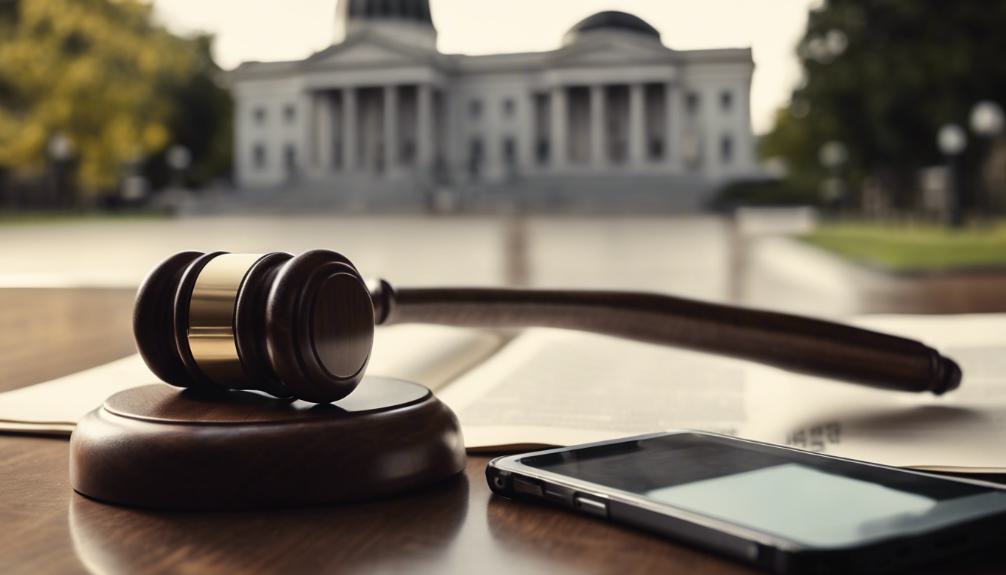
Key Takeaways
- Uber's $328 million settlements in New York impact over 100,000 drivers, ensuring minimum pay and sick leave.
- Legal battles focus on driver classification, aiming to secure fair compensation and address backpay violations.
- The lawsuit signifies a broader movement toward economic justice and fair treatment for gig economy workers.
- These settlements and legal challenges set new industry standards for worker protections and compensation in the gig economy.
Overview of Uber Lawsuits
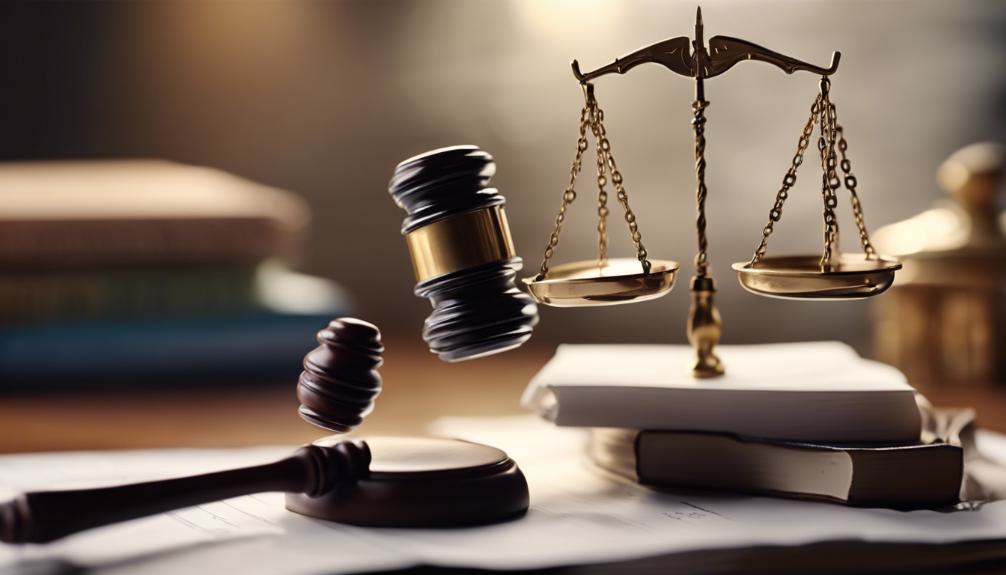
Uber's legal battles have culminated in a significant $290 million settlement over backpay violations in New York, marking a pivotal moment for gig economy workers. This settlement not only highlights the ongoing concerns regarding the treatment of drivers but also sets a precedent for how gig economy workers might be compensated and protected in the future. We've closely followed the developments of this case, recognizing its potential to reshape the landscape for drivers and similar workers across the board.
The settlement, which benefits over 100,000 drivers in New York, includes provisions for minimum pay, paid sick leave, and other critical benefits that were previously denied to them. It's a significant victory in addressing wage theft and ensuring that gig workers are treated fairly. New York Attorney General Letitia James played a significant role in securing this landmark settlement with Uber, reinforcing the importance of holding companies accountable for their treatment of workers.
We're heartened to see such a substantial step taken towards rectifying the injustices faced by Uber drivers. This settlement not only provides immediate financial relief to thousands of individuals but also signals a broader shift towards recognizing and upholding the rights of gig economy workers.
Lyft and Uber Settlements
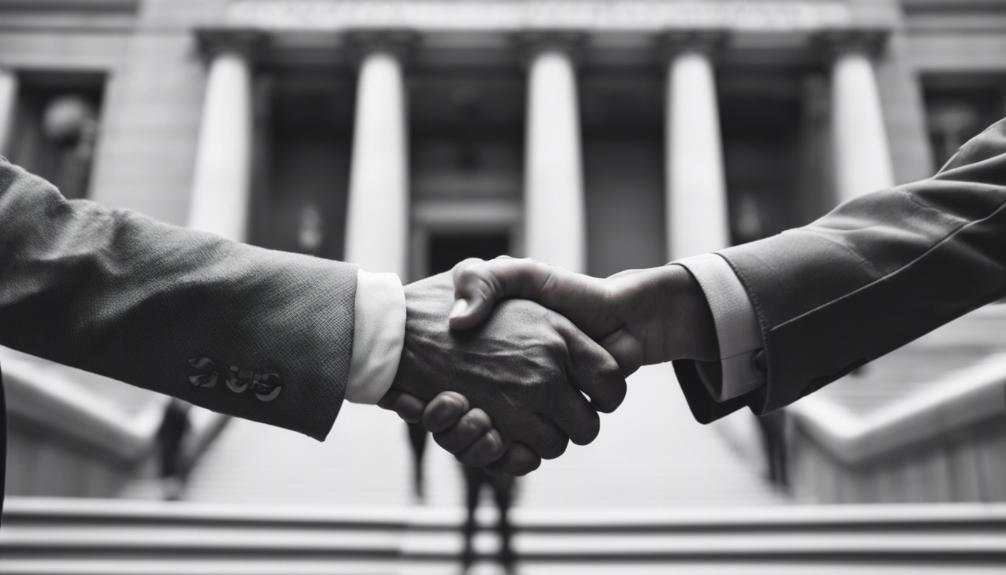
In a groundbreaking move, Lyft and Uber have agreed to multimillion-dollar settlements, marking a significant victory for gig workers in New York. Uber's contribution to the settlement amounts to $290 million, while Lyft's share is $38 million. This financial commitment is in response to accusations of violating New York labor laws, specifically around minimum pay and paid sick leave provisions.
This settlement impacts over 100,000 drivers in New York City, offering them not just financial compensation but also important benefits like minimum pay and paid sick leave. Drivers outside of NYC are now guaranteed a minimum of $26 per hour, a significant uplift in their earnings. Additionally, they'll earn one hour of sick pay for every 30 hours worked. This provision is a lifeline for many drivers, a lot of whom are immigrants and the primary breadwinners in their families.
The New York Taxi Workers Alliance (NYTWA) has been instrumental in this victory, advocating tirelessly for the rights and benefits of drivers. This settlement, thus, isn't just a win in financial terms; it's a monumental step forward in recognizing the rights and contributions of gig workers to the city's economy.
Employee Vs. Independent Contractor
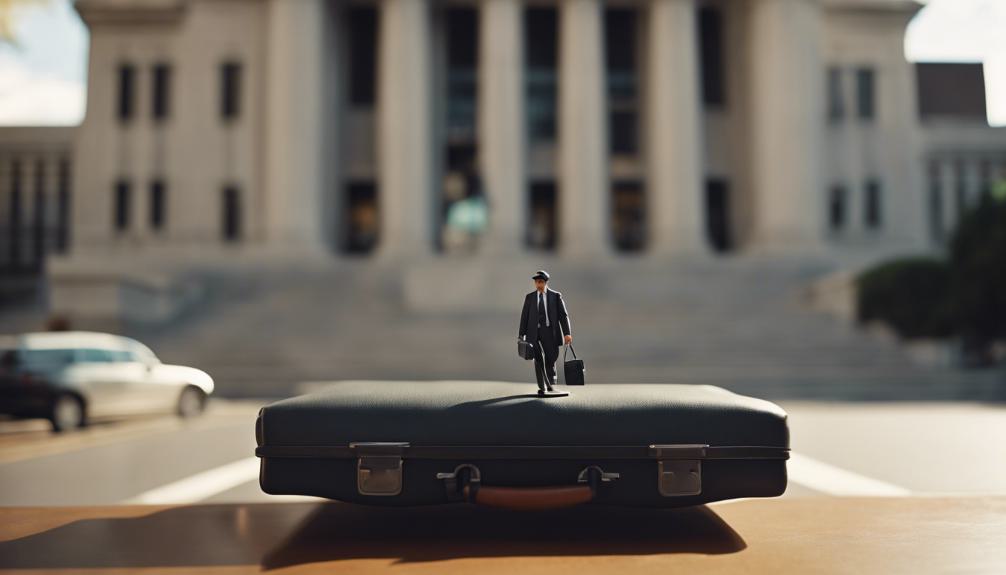
At the heart of the Uber lawsuit is the important distinction between being labeled an independent contractor and an employee, a classification that greatly impacts drivers' rights and benefits. We're seeing a legal battle unfold that challenges Uber's current model of classifying drivers as independent contractors, which greatly affects their entitlement to minimum wage, overtime pay, and paid sick leave. This lawsuit aims to guarantee fair treatment and proper compensation for drivers, advocating for fair labor practices in an industry that's become integral to our daily lives.
New York Attorney General Letitia James has taken a stance in this matter, highlighting the broader implications for gig economy workers and labor laws concerning employee status. Misclassification can lead to exploitation and a lack of essential worker protections, an issue that's far too common in today's gig economy. As supporters of Uber and Lyft drivers, we're closely monitoring this lawsuit, hopeful for a future where fair labor practices are not just an ideal but a reality for all workers. The outcome of this legal challenge could set a precedent, potentially transforming the gig economy and ensuring that workers are no longer denied the benefits and protections they rightfully deserve.
Safety Concerns and Legal Actions
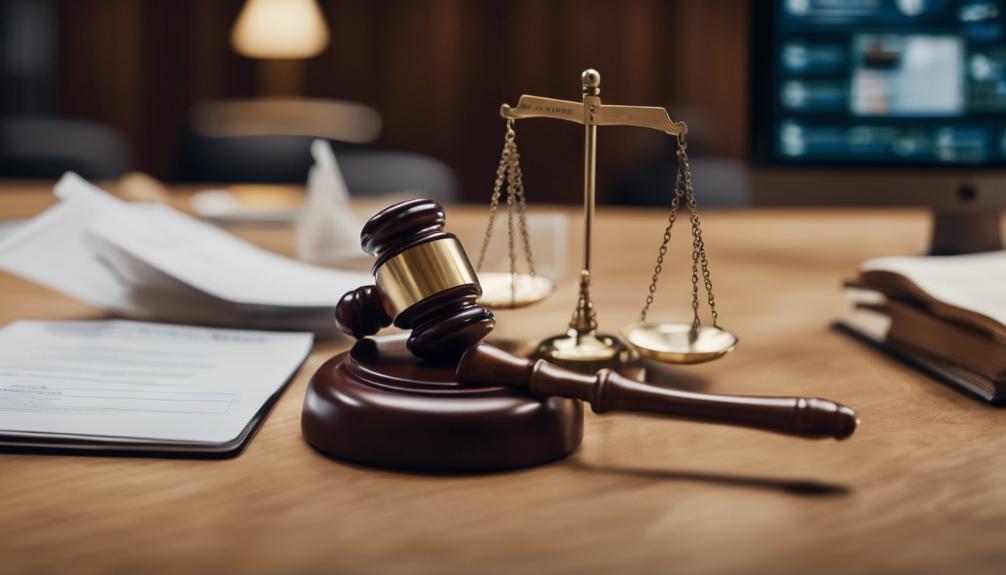
We're now turning our attention to the critical issues of safety concerns and the subsequent legal actions that have shaped Uber's policies and reputation. It's clear that the ride safety issues, the overview of the legal battles, and the passenger protection measures are pivotal aspects that have spurred significant changes within the company. These points highlight the journey towards ensuring a safer and more transparent service for all users.
Ride Safety Issues
Ride safety issues have led to legal actions against Uber, including claims of misrepresenting safety protocols and fees. We're concerned about the implications for both riders and drivers. Eminently, New York Attorney General Letitia James took a stand, highlighting the need for guaranteed paid sick leave for drivers and questioning the handling of Black Car Fund fees. These actions underline the urgency of addressing safety concerns and the transparency of fees charged. It's become clear that ensuring ride safety isn't just about immediate measures but also involves supporting the wellbeing of those behind the wheel. The settlement reached promises changes, aiming to improve how safety measures and fees are communicated. We're hopeful these adjustments will foster a safer, more transparent environment for everyone involved.
Legal Battles Overview
Building on our concerns about ride safety and fee transparency, it's important to explore the legal battles Uber has faced, including the significant $32.5 million settlement over safety misrepresentations. This legal action highlighted the essential aspects of transparency and accountability within the rideshare industry. Uber's settlement, particularly concerning the Safe Rides Fee, underscored the importance of accurately representing safety measures and fees to consumers. The changes to Uber's advertising practices, prompted by this settlement, mark a step towards addressing these allegations. Additionally, the distribution of the settlement fund to eligible class members in May 2023 illustrates the tangible outcomes of such legal battles. It's vital for us to acknowledge these developments as they reflect the ongoing efforts to guarantee rider safety and fairness in the rideshare sector.
Passenger Protection Measures
Uber's legal battles have spotlighted the critical necessity to enhance passenger protection measures and address safety concerns head-on. Facing allegations of misrepresenting the effectiveness of its safety measures, we've seen how vital it is to guarantee passenger well-being. The legal scrutiny, prompted by New York Attorney General Letitia James, aimed at holding us accountable for our passengers' safety, pushing us towards transparency in our safety practices. Settlement funds from these legal actions are now pivotal in improving our safety protocols. We're focused on addressing these safety issues, ensuring compliance with regulations, and rebuilding trust. It's clear that legal measures are not just about enforcement but about driving us to prioritize passenger safety above all, cementing our commitment to protect every ride.
Global Legal Challenges

We're now turning our focus to the global legal challenges that Uber has been facing. These challenges include regulatory hurdles worldwide and disputes over worker classification. It's clear that these legal battles have put Uber's business model and its relationships with drivers under the microscope in multiple countries.
Regulatory Hurdles Worldwide
Traversing the legal landscape, we've encountered numerous regulatory hurdles across the globe, challenging our operations and shaping our business strategy. For instance, in New York, we've faced significant legal scrutiny from New York Attorney General Letitia James regarding the functionality and implications of the Uber Driver app. The local regulatory body, the Limousine Commission (TLC), has imposed strict requirements, demanding that we align our operations more closely with local laws. These encounters are indicative of the broader challenges we've faced worldwide, as various governments have implemented restrictions to guarantee compliance with their specific legal frameworks. Such regulatory interventions have not only required us to adapt our business model but have also had a profound impact on our global strategy, underscoring the complexity of operating within divergent legal environments.
Worker Classification Disputes
Globally, we've encountered significant worker classification disputes, challenging whether our drivers are independent contractors or employees. The heart of these battles lies in the nature of our business model and the autonomy we provide to our drivers. In places like the UK, courts have ruled against us, marking our drivers as workers entitled to benefits, which sets a precedent that could influence other regions. These disputes aren't just about us; they're about the broader gig economy and the need for clear regulations. New York State Attorney General Letitia James has been vocal, emphasizing the importance of correctly classifying workers. The outcomes of these legal challenges are vital, as they'll shape our operations and potentially redefine the gig economy's future.
Impact on Gig Economy
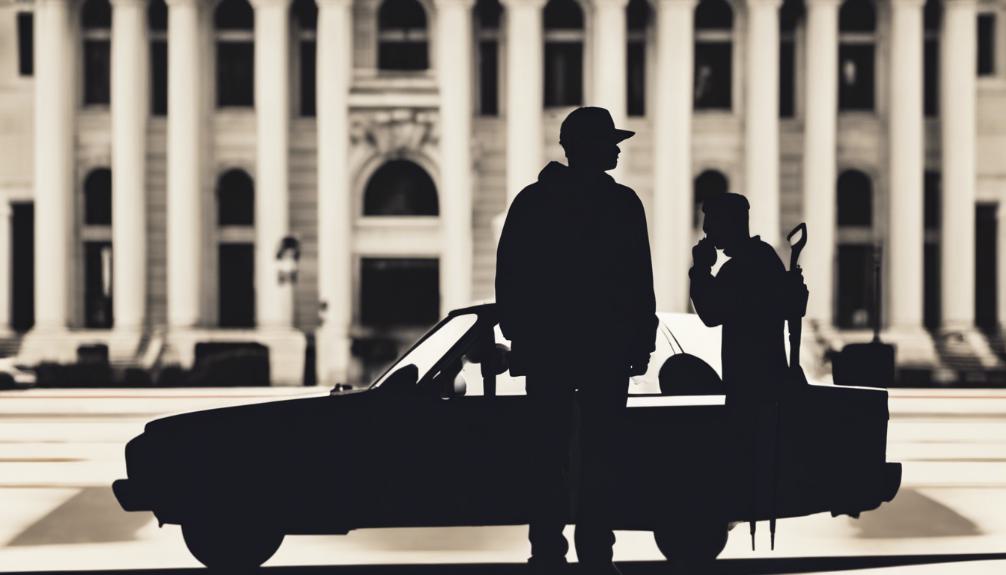
The Uber lawsuit settlement marks a significant turning point for gig economy workers, setting a new precedent for their rights and compensation. Spearheaded by New York State Attorney General Letitia James, the settlement has brought to the forefront the critical need for fair compensation and better working conditions within the gig economy. We're now seeing a tangible shift towards recognizing the value and rights of gig workers, especially ride-share drivers who have long been at the mercy of fluctuating pay rates and nonexistent benefits.
This settlement guarantees that thousands of ride-share drivers in New York City will not only receive financial compensation but will also benefit from provisions for minimum pay rates and paid sick leave. It's a monumental step in addressing the long-standing issues of wage theft and unfair practices that have plagued gig economy workers. The impact of this lawsuit goes beyond financial compensation; it's about securing economic justice and setting a standard for how gig workers are treated. We're witnessing a pivotal moment in the fight for fair treatment in the gig economy, highlighting the importance of legal actions in protecting workers' rights and ensuring they are compensated fairly for their contributions.
Regulatory Responses
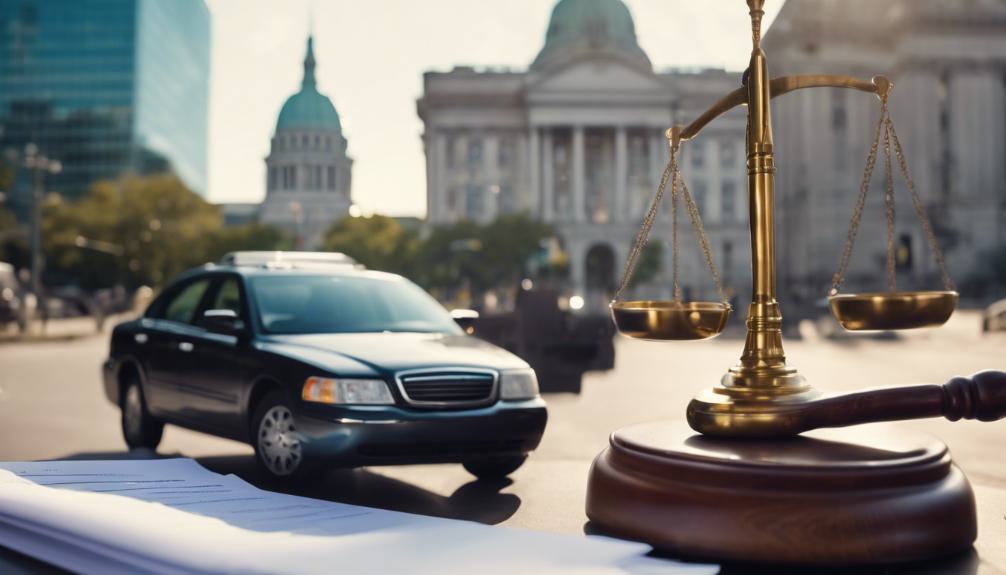
In addressing the regulatory responses to the Uber lawsuit, we've seen a significant shift in how governments and legal systems approach gig economy violations. The imposition of legal consequences on Uber, including hefty financial penalties and mandates for fair labor practices, marks a critical step towards ensuring gig workers' rights. These actions not only rectify past wrongs but also set a new standard for the treatment of workers in similar industries.
Government Policy Changes
Responding to the Uber lawsuit, governments have stepped up by enforcing minimum pay rates and paid sick leave for drivers, marking a significant shift in policy. In places like New York, these changes are especially pivotal, showcasing a dedicated effort to rectify past violations by companies such as Uber and Lyft. These regulations aim to guarantee fair compensation and improved working conditions, setting a new precedent within the gig economy. It's clear that the protection of workers' rights in the transportation industry has become a priority. The implementation of these policies underscores a move towards economic justice and stronger labor protections for rideshare drivers. This shift highlights the government's commitment to holding gig economy giants accountable and ensuring fairness in the treatment of their workers.
Legal Consequences Imposed
Building on government policy changes, regulatory responses to the Uber lawsuit have seen the company facing fines, penalties, and settlements worth millions. We've watched as state and federal authorities didn't hesitate to impose hefty legal consequences on Uber for a slew of violations, especially those tied to driver compensation and labor laws. These actions underscored the seriousness of misrepresentations, wage theft, and the failure to provide essential benefits like paid sick leave to drivers. Significantly, New York Attorney General Letitia James has been at the forefront, championing the rights of gig workers, including Lyft drivers, ensuring they're not left in the lurch. These legal repercussions serve as a stark warning to the gig economy at large, emphasizing the non-negotiable importance of fair treatment for all workers.
Worker Rights and Protections
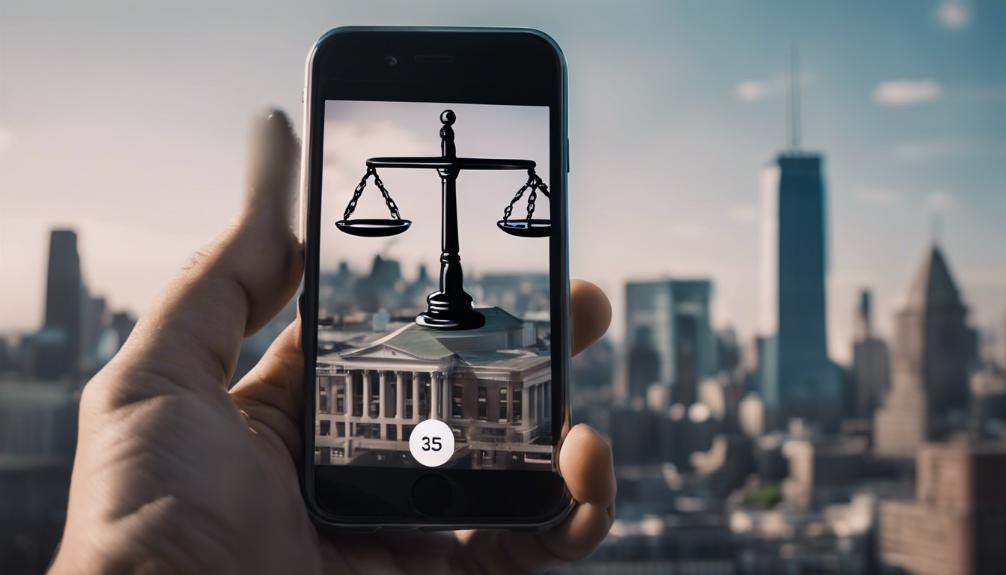
We've seen a significant stride towards economic fairness with Uber and Lyft's $328 million settlement, which underscores the growing emphasis on worker rights and protections within the gig economy. New York Attorney General Letitia James has been at the forefront, championing the cause for over 100,000 drivers in New York. This settlement not only acknowledges their hard work but also sets a precedent for how gig workers should be treated moving forward.
The inclusion of minimum pay guarantees, paid sick leave, and other benefits in the settlement brings to light the essential rights that every worker, regardless of their employment status, deserves. It's especially remarkable that drivers outside of NYC will now earn a minimum of $26 per hour, along with earning one hour of sick pay for every 30 hours worked. This move towards ensuring economic justice, fair wages, and improved working conditions marks a monumental victory for gig economy workers. It's a clear indication that the voices of rideshare drivers are being heard and their contributions to the industry are being acknowledged and rewarded accordingly.
Financial Implications for Uber
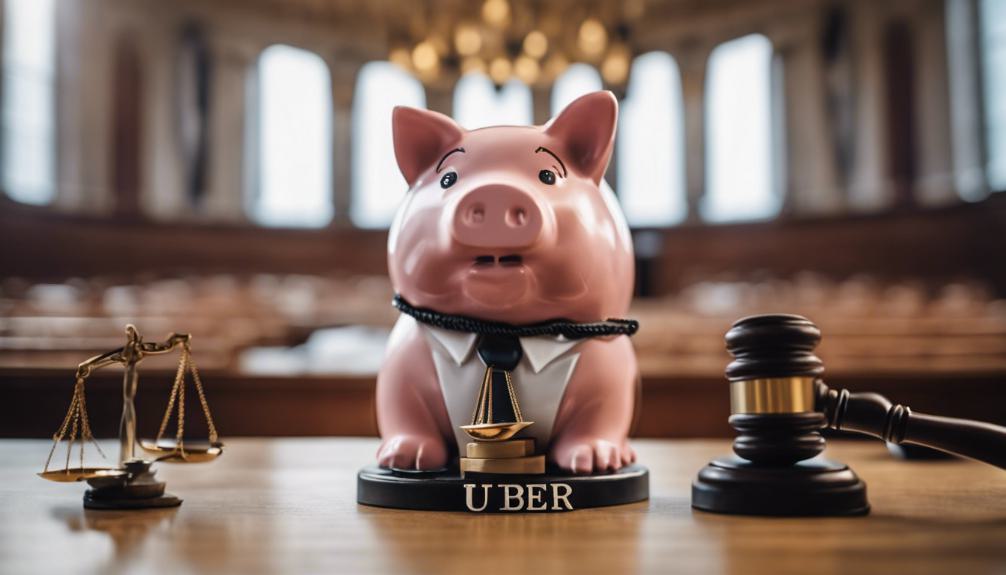
While celebrating the strides made in worker rights, it's also important to ponder how the recent $328 million settlement impacts Uber financially. This significant sum, which includes $290 million in backpay to drivers and a $32.5 million settlement fund, reflects the company's commitment to rectifying past financial oversights. We've witnessed Uber grappling with the consequences of not providing minimum pay guarantees and paid sick leave, as highlighted by New York Attorney General Letitia James. These commitments not only represent a substantial financial outlay but also signal a shift in how Uber manages its financial obligations moving forward.
The settlement's components, such as addressing deductions, taxes, and administrative charges for drivers, underscore the financial ramifications for Uber. It's a clear indication that fair compensation practices in the gig economy are not just moral imperatives but also come with significant financial stakes. We're now seeing the tangible impact of these practices on Uber's balance sheet, reflecting a broader movement towards recognizing and compensating gig workers fairly. This settlement marks a pivotal moment in how gig economy companies perceive and fulfill their financial obligations to their workforce.
Future of Ride-Hailing Services
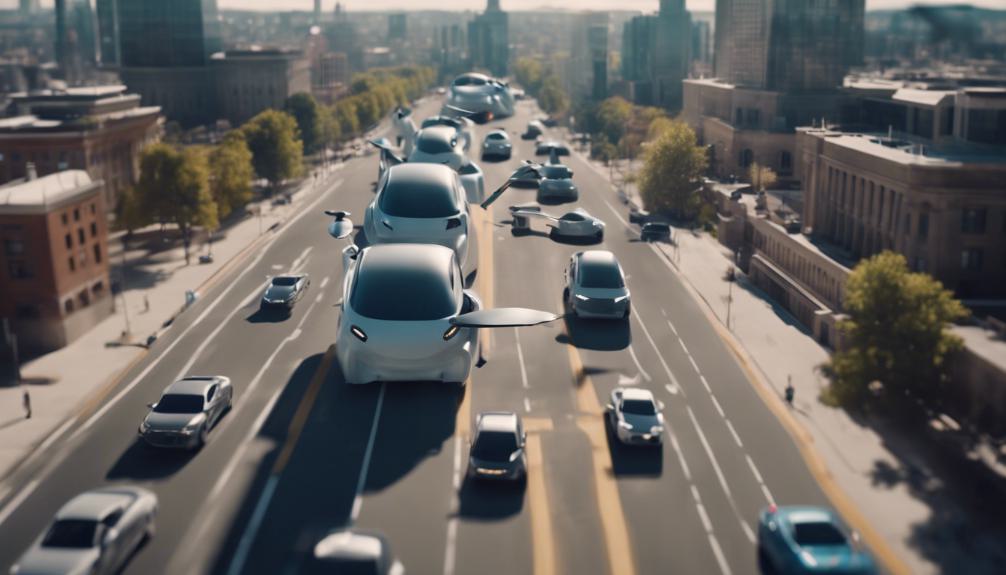
As we look ahead, the future of ride-hailing services appears poised for significant changes, driven by increased accountability and recent legal precedents. The landscape of the gig economy, especially for companies like Uber and Lyft, is shifting under our feet. We're witnessing a pivotal moment where the need for fair compensation and the welfare of drivers are taking center stage. The settlements addressing wage theft and worker protections are not just legal victories; they're catalysts for a broader movement towards economic justice for gig workers.
These changes could redefine what it means to work within the ride-hailing industry. Ensuring paid sick leave, minimum pay rates, and robust worker protections are no longer optional perks but essential standards that companies must adhere to. We believe these improvements are not just beneficial for the drivers but are critical for the sustainability of the ride-hailing model itself.
The impact of these legal actions and settlements stretches beyond immediate financial adjustments. They're laying the groundwork for a future where ride-hailing services operate with a heightened sense of responsibility towards their drivers. As we move forward, it's clear that the industry must evolve to prioritize driver welfare, marking a significant shift in how gig economy workers are treated and compensated.
Legal Precedents Set
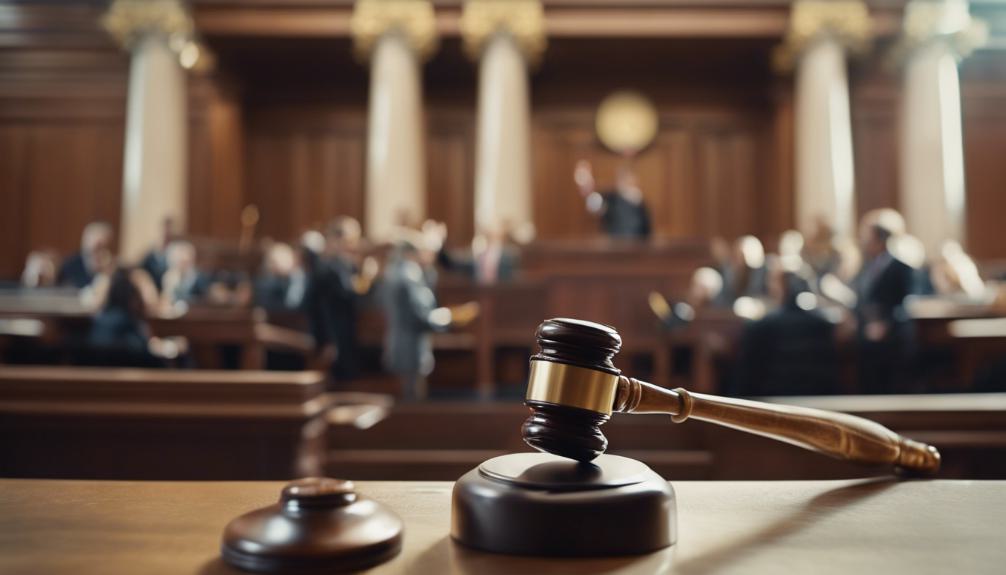
Uber's lawsuit settlement marks a turning point, setting pivotal legal precedents for the gig economy by guaranteeing drivers receive fair compensation and benefits. The agreement, necessitating Uber to disburse $290 million in backpay to its drivers, not only addresses past injustices but also pioneers a future where gig workers are recognized for their contributions. Spearheaded by New York Attorney General Letitia James, this legal battle highlighted the pressing need for an earnings floor and paid sick leave, advocating for over 100,000 drivers in New York.
These legal actions against companies like Uber and Lyft brought to light various violations, including unwarranted deductions and the lack of essential benefits such as paid sick leave. The settlement is a monumental win for gig economy workers, promising them the fair treatment and economic justice that have long been overdue. New policies emerging from this settlement are set to curb wage theft and ensure earnings floors, fundamentally enhancing working conditions for ride-share drivers. This marks a significant step towards reshaping the gig economy, ensuring that drivers are no longer sidelined but are provided the benefits and compensation they rightfully deserve.
Frequently Asked Questions
Is There Any Lawsuit Against Uber?
We've been wondering if there's any legal action against Uber. Turns out, there's a major lawsuit resolving payment issues, with a $328 million settlement. It's a big step towards fair pay and conditions for drivers.
How Much Will I Get From the Uber Settlement?
We're wondering how much we'll receive from the settlement. Since eligible users are getting a share of the $32,500,000 fund, it'll depend on the number of claimants. Payments start distribution on May 1, 2023.
Why Did I Get an Uber Settlement Check?
We received an Uber settlement check because there were issues with how they advertised safety features and charged fees. It's compensation from a lawsuit that claimed Uber misled users, resulting in changes to their practices.
What Is the New Uber Settlement?
We're looking at a new settlement where Uber's agreed to create a $32.5 million fund for misrepresenting safety measures. It affects drivers from 2013 to 2016, changing ads and how fees are showcased.

This post has been generated by AI and was not reviewed by editors. This is Not legal advice. Please consult with an attorney.




